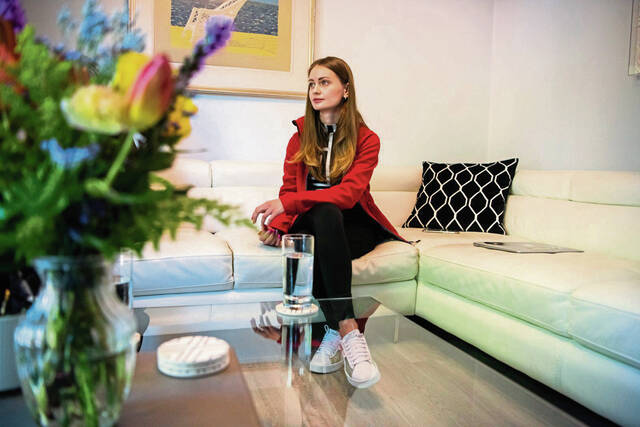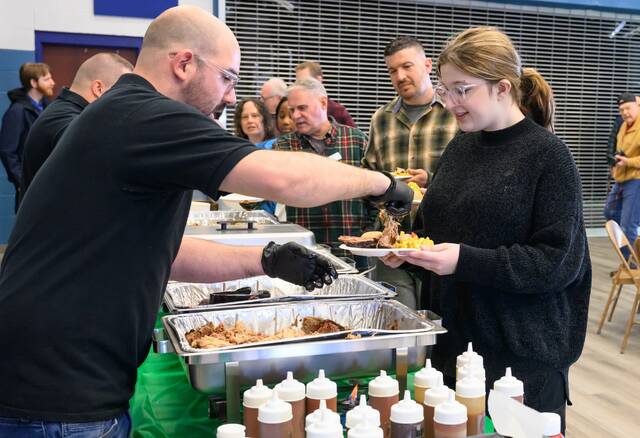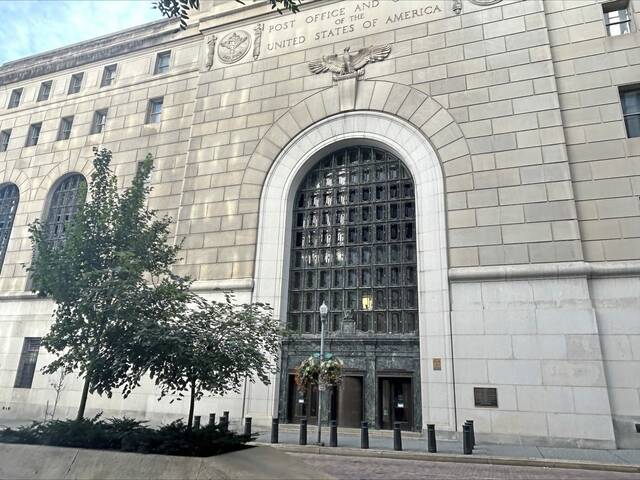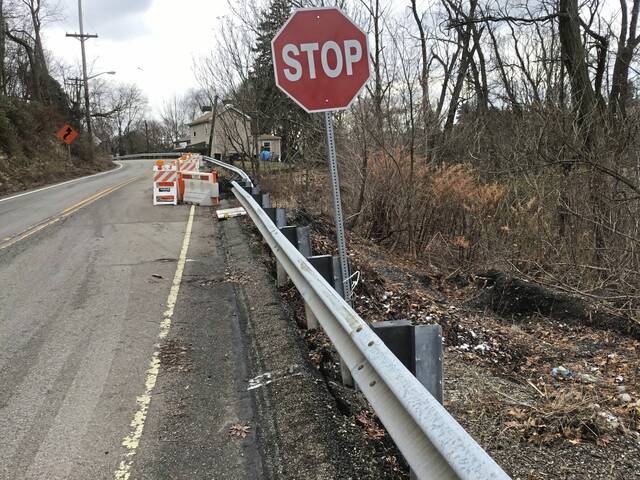When 2022 began for Daria Zhuravska, she was feeling good about her life in Ukraine.
The 27-year-old Kyiv resident had landed a job as an office manager for an information technology company. She was living with her boyfriend, not far from her family and friends, and enjoyed taking dance and yoga classes.
As she remembers it, there was internet chatter around Feb. 18 about a Russian attack on Ukraine being imminent. Zhuravska didn’t believe it.
“Everybody thought it was fake, like, ‘C’mon, it’s the 21st century, what can start?’ ” she said. “I had no worries. A little bit yes, but I couldn’t even believe that such a horrible thing could happen.”
Nevertheless, her boss brought in buses and parked them nearby. They were to take employees to safety in the event of a Russian attack. And, as if things weren’t scary enough, Zhuravska tested positive for covid-19 that same week.
Since then, as with so many Ukrainian citizens, Zhuravska’s life has been dramatically different.
She has now lived what must seem like parts of three lives in just the first few months of this year — the life she was used to in Ukraine; taking refuge with her family in Germany; and now a new life on her own in America, where she is making friends, improving her English and following a new career path.
Zhuravska is among the first Ukrainian refugees to make it to the Pittsburgh area. The way she got here is about as serendipitous as anyone can imagine and equally as fortunate.
Seated comfortably on a white leather couch in the home of Ross resident Danette Rocco, Zhuravska looks very much at home in a red jacket, black slacks and fashionable tennis shoes — items Rocco helped her shop for.
Zhuravska has been here for a couple of weeks. Though it’s been nearly three months since Russia attacked Ukraine, her memories of the day the war broke out are still fresh.
She remembers the morning of Feb. 24 quite vividly.
“Around 5 a.m., I woke up. I didn’t understand why I woke up,” said Zhuravska, who speaks very good English with a distinct Ukrainian accent. “I just grabbed a cup of water and went back to bed. Ten minutes later, my friend called me and said: ‘The war has started. The Russians have bombed a lot of key airports of big cities in Ukraine, and Kyiv is bombed also.’
“It was very scary because we (didn’t) know what to do,” she said. “My mother and I were in a panic.”
Zhuravska and her family, including her parents, grandparents and a 16-year-old sister, headed for her aunt’s house in a village on the outskirts of the city. She said they could hear missiles flying overhead and bombs going off nearby. They spent most of the next two days in the basement of the house.
It became tough to stay where they were, but also risky to get back out on the road. Eventually, the family decided the only safe thing to do was leave the country. After learning there was a three-day wait to cross into Poland, they went to the border with Hungary, where Zhuravska said goodbye to her dad and the rest of the men who were not allowed to leave Ukraine.
From there it was on to Slovakia, Poland and the town of Bad Kissengen in Bavaria, Germany, where the family decided to stay while the war got worse in Ukraine.
But Zhuravska was not particularly happy in Germany. She decided to pursue her teenage dream of coming to America.
“It’s a question of mentality,” she said. “I felt the American mentality would be more close to mine. I always thought Americans would be more open-minded, that there are a lot of opportunities. I also heard stories about Ukrainian people coming to America to build their lives, get a good job, build a good family here and overall, feel comfortable.”
Zhuravska posted a message on Facebook that she characterized as, “Please universe, help me.”
Rocco saw it and responded. Their first communication was April 1.
“Daria was one of the first (Ukrainians) I saw (on social media) who wanted to come to the United States,” said Rocco. “I saw her message and I cautioned her and suggested she stay with a woman or a family.”
The mother of two grown sons, Rocco now lives alone. She offered Zhuravska a chance to stay with her.
“I miss being a mother; that was my favorite role in life,” said Rocco. “I said I had a lot of the things that she was looking for — a place close to the city, close to transportation, close to a place where she could do yoga.” (Zhuravska doesn’t drive.)
Zhuravska also liked that Rocco is a career counselor at Phase 4 Learning Center, a place that helps at-risk people earn their high school diploma and succeed in either higher education, the military or in the workforce.
It took between three and four weeks for Zhuravska to get to Pittsburgh. She made it to America not a moment too soon. She flew from Germany to Mexico to California just days before April 25, the day the Biden administration began denying entry to Ukrainians attempting to cross into the United States via Mexico.
Since she arrived, Rocco said, they’ve been busy getting things that Zhuravska has needed since leaving Ukraine with one suitcase, especially clothing, as well as a bank account and a health club membership.
What Zhuravska seems to be enjoying most is accompanying Rocco three days a week to her job at Phase 4, a non-traditional school where students do things at their own pace and are offered support if they need it. It’s enabled her to learn new skills, work with the students and improve her English.
“I’m learning, and maybe one day I can do the same thing, like helping young people. Kids are kids, and they’re smart,” she said. “It makes me feel good because I always studied psychology, and it’s my intention to help young people.”
Phase 4 founder, president and CEO Terrie Suica-Reed, said Zhuravska’s presence brings a lot to the environment at the learning center.
“We’re very pleased to have her here,” she said. “She’s strong. She’s intelligent. She learns very quickly. She’s very grateful for the opportunity to be in the United States. She loves our city. She’s also grateful for the staff at Phase 4 because it’s like a family.”
Still, Zhuravska said she misses her Ukrainian family and is concerned for her father’s safety as well as that of her boyfriend, who has joined the Ukrainian Army. She figures she’ll be in the U.S. for at least a year. After that, she might return to Ukraine, but she’s not sure.
“I certainly appreciate this experience. Maybe I’ll find work here, some friends, and I’ll stay here. For now, I can’t say.”













